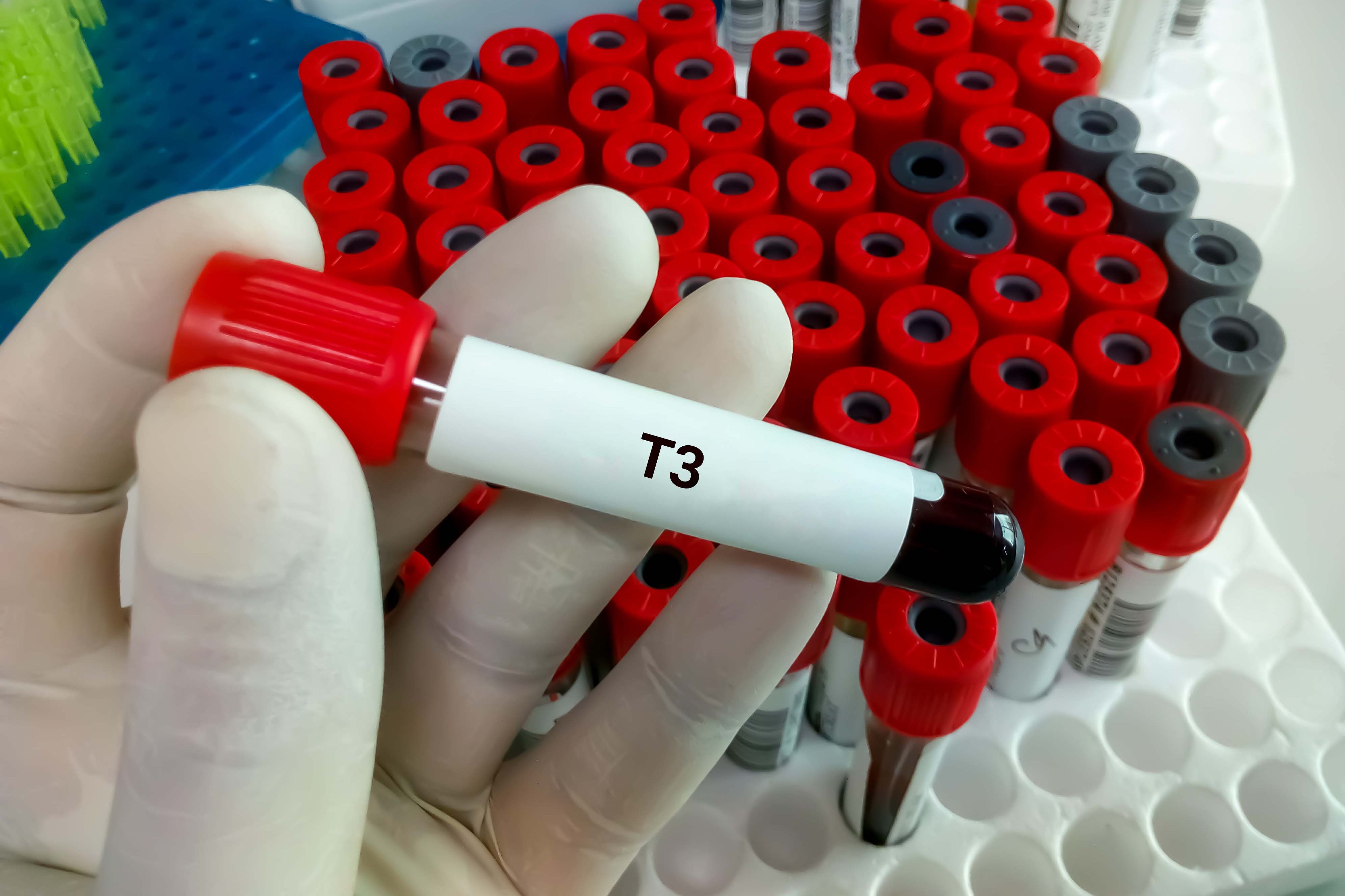
(Vienna, 16 November 2022) Thyroid dysfunction has a significant impact on human health and can promote obesity, diabetes and even cancer. In a recent overview study, a MedUni Vienna research team investigated the role played by a specific protein, the thyroid-hormone-binding protein μ-crystallin (CRYM). This has an important damping effect on hyperthyroidism and the diseases associated with it. The results were published in the respected journal "Trends in Endocrinology and Metabolism".
The recently published overview study by researchers led by Lukas Kenner from the Department of Pathology at MedUni Vienna describes the molecular properties of the CRYM protein, its mode of action in various tissues and its role in obesity and diseases such as diabetes and, in particular, cancer. Thyroid hormones are essential regulators of development, energy homeostasis and metabolism and govern a variety of effects in organs. Triiodothyronine (T3) is a hormone produced directly in the thyroid gland that stimulates certain metabolic processes. Excessive levels of T3 and thus hyperthyroidism can promote obesity, exacerbate type 2 diabetes, and even lead to a poorer prognosis in prostate cancer. Since they enhance the activity of growth-promoting signalling pathways in cancer cells, higher levels of thyroid hormones are also associated with cancer progression.
CRYM not present in aggressive tumours
The activity of T3 in cells is regulated by various proteins, including CRYM, an intracellular T3-binding protein. The more CRYM that is present, the more T3 is bound and thus inactivated. The modulation of CRYM therefore directly controls T3 activity. In was found, for example, that there was reduced expression of CRYM in aggressive prostate cancers, says study leader Lukas Kenner, giving an example of the scope of the findings: "CRYM is a very important brake on the thyroid hormone balance and, hence, on the growth of prostate cancer cells. You can therefore say that these tumours become really aggressive when there is an absence of CRYM." The interaction of thyroid hormones with their intracellular receptors - especially CRYM - is therefore an important prognostic factor and may even represent a therapeutic target in metabolic diseases and cancer.
Publication: Trends in Endocrinology and Metabolism
Role of T3-binding protein μ-crystallin (CRYM) in health and disease
Osman Aksoy, Brigitte Hantusch, Lukas Kenner
https://doi.org/10.1016/j.tem.2022.09.003